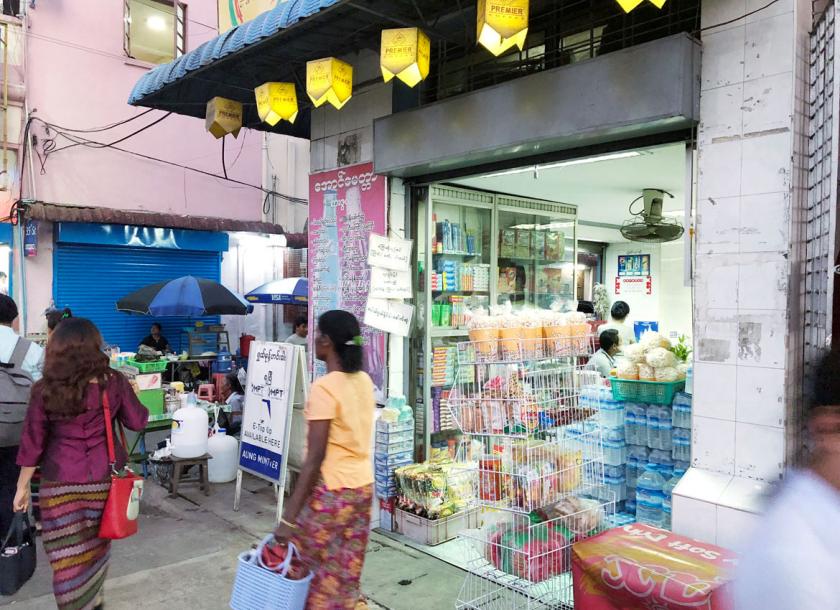Myanmar: SMEs need more funding, support system to expand further
Efforts to support small and medium enterprises (SMEs) over the past three years have so far not been sufficient to generate meaningful growth for the economy, experts said.
While a higher volume of loans were dished out by state-owned and local banks, only a few SMEs have successfully expanded their operations in the past three years.
“There were definitely efforts to help local SMEs, but none have been game changers so far,” said U Ngwe Tun, owner of local business Genius Coffee.
The problem, he points out, is the lack of a support system that provides SMEs with assistance in gaining access to financing as well as technology, human resources and a framework setting basic standards of book keeping and governance.
U Zin Phyo Paing, a trainer and consultant for local SMEs, said the other issue is financial management: “Giving loans alone is not enough. In fact, the hard part is how to manage debt and be able to repay it. Currently though, not many SMEs practice good debt management,” he said.
Import substitutes
One of the areas in which an SME support system is urgently needed is import substitution. In Mandalay, for example, SMEs involved in producing goods such as garments and food to replace imports do not enjoy the necessary support required to scale and grow their businesses.
“Lack of access to funding is the biggest setback. But SMEs in this industry also lack the technological knowhow and skilled labour required to grow,” said U Khin Maung Hla, chair of Mandalay Industrial Zone Management Committee.
So far, only a handful of local import substitution businesses have succeeded in using technology to make better quality products at higher volumes and lower costs. Most SMEs in this industry are still struggling with losses and falling demand though, said U Nyan Aung, a Mandalay trader in the import substitution line.
Demand for local goods is falling because cheap Chinese products are spilling across the Myanmar-China border and flooding the domestic market. “Import substitutes need to be of better quality to gain an edge over imports,” said U Nyan Aung.
But due to the lack of skills and technological knowhow, local SMEs are not capable of competing with foreign companies on a similar scale and are therefore shutting down.
Success stories
Nevertheless, access to financing has improved compared to before and some SMEs have managed to expand with the help from international organisations like the Japan International Cooperation Agency (JICA) and clever allocation of the funds.
Over the past three years, JICA extended a total of K61.2 billion in funds via local banks to SMEs in 14 regions and states, according to the organisation.
“JICA offers two-step loans together with the banks enabling them to monitor the borrower’s performance. If business is good, the second part of the loan will be made available. This provides better chances of success,” said U Zin Phyo Paing.
U Ngwe Tun of Genius Coffee is among the success stories. “We managed to raise production with funds from JICA, which we used to buy equipment and machinery, employ more people and provide more training. As such, our business was able to develop and we were able to compete with imported goods locally as well as export to more than 20 countries. The more funding we get, the more we can grow,” he said.
He added that while assets are necessary as collateral for loans, having a sound business plan is even more important. “In many cases, despite having assets, if there is no business plan, loans will not be extended,” U Ngwe Tun said.
“The main problem for many SMEs is that only very few have the details needed for a sound business plan. If these details are prepared and available, many SMEs will already be more than halfway towards qualifying for loan support,” U Zin Phyo Paing said.
Looking forward though, Myanmar SMEs will need to buck up as competition will only get tougher once the ASEAN Economic Community (AEC) commences this year. Under the AEC, the ASEAN nations hope to create a single market and production base leading to a highly competitive economic region.
“Myanmar SMEs will be forced to compete with other companies from across the region. So, borrowers will need to coordinate and cooperate with their lenders,” U Ngwe Tun said.
“But what we need to change the game is a major overhaul like in the telecommunications sector where we saw big game-changing measures taking place,” he said.
Source: https://www.mmtimes.com/news/smes-need-more-funding-support-system-expand-further.html


 English
English




